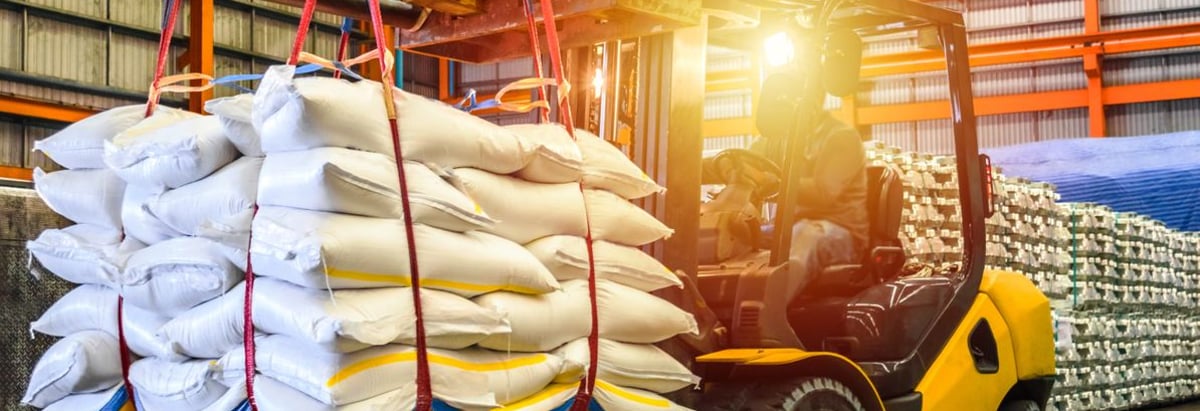
The external fund manager backed by Berkshire Hathaway's Charlie Munger, Li Lu, makes no bones about it when he says 'The biggest investment risk is not the volatility of prices, but whether you will suffer a permanent loss of capital.' So it seems the smart money knows that debt - which is usually involved in bankruptcies - is a very important factor, when you assess how risky a company is. Importantly, Borealis Foods Inc. (NASDAQ:BRLS) does carry debt. But should shareholders be worried about its use of debt?
When Is Debt Dangerous?
Debt and other liabilities become risky for a business when it cannot easily fulfill those obligations, either with free cash flow or by raising capital at an attractive price. If things get really bad, the lenders can take control of the business. However, a more common (but still painful) scenario is that it has to raise new equity capital at a low price, thus permanently diluting shareholders. Of course, plenty of companies use debt to fund growth, without any negative consequences. When we examine debt levels, we first consider both cash and debt levels, together.
View our latest analysis for Borealis Foods
How Much Debt Does Borealis Foods Carry?
You can click the graphic below for the historical numbers, but it shows that Borealis Foods had US$44.8m of debt in September 2024, down from US$70.5m, one year before. Net debt is about the same, since the it doesn't have much cash.

How Healthy Is Borealis Foods' Balance Sheet?
We can see from the most recent balance sheet that Borealis Foods had liabilities of US$30.3m falling due within a year, and liabilities of US$26.5m due beyond that. Offsetting this, it had US$721.5k in cash and US$2.91m in receivables that were due within 12 months. So it has liabilities totalling US$53.2m more than its cash and near-term receivables, combined.
While this might seem like a lot, it is not so bad since Borealis Foods has a market capitalization of US$133.4m, and so it could probably strengthen its balance sheet by raising capital if it needed to. But it's clear that we should definitely closely examine whether it can manage its debt without dilution. When analysing debt levels, the balance sheet is the obvious place to start. But it is Borealis Foods's earnings that will influence how the balance sheet holds up in the future. So when considering debt, it's definitely worth looking at the earnings trend. Click here for an interactive snapshot.
Over 12 months, Borealis Foods made a loss at the EBIT level, and saw its revenue drop to US$28m, which is a fall of 6.6%. That's not what we would hope to see.
Caveat Emptor
Over the last twelve months Borealis Foods produced an earnings before interest and tax (EBIT) loss. Its EBIT loss was a whopping US$18m. When we look at that and recall the liabilities on its balance sheet, relative to cash, it seems unwise to us for the company to have any debt. So we think its balance sheet is a little strained, though not beyond repair. However, it doesn't help that it burned through US$19m of cash over the last year. So suffice it to say we consider the stock very risky. There's no doubt that we learn most about debt from the balance sheet. However, not all investment risk resides within the balance sheet - far from it. For instance, we've identified 3 warning signs for Borealis Foods that you should be aware of.
At the end of the day, it's often better to focus on companies that are free from net debt. You can access our special list of such companies (all with a track record of profit growth). It's free.
Valuation is complex, but we're here to simplify it.
Discover if Borealis Foods might be undervalued or overvalued with our detailed analysis, featuring fair value estimates, potential risks, dividends, insider trades, and its financial condition.
Access Free AnalysisHave feedback on this article? Concerned about the content? Get in touch with us directly. Alternatively, email editorial-team (at) simplywallst.com.
This article by Simply Wall St is general in nature. We provide commentary based on historical data and analyst forecasts only using an unbiased methodology and our articles are not intended to be financial advice. It does not constitute a recommendation to buy or sell any stock, and does not take account of your objectives, or your financial situation. We aim to bring you long-term focused analysis driven by fundamental data. Note that our analysis may not factor in the latest price-sensitive company announcements or qualitative material. Simply Wall St has no position in any stocks mentioned.
About NasdaqCM:BRLS
Borealis Foods
Operates as a food tech company that provides nutritious food products.
Slight with imperfect balance sheet.
Market Insights
Community Narratives



